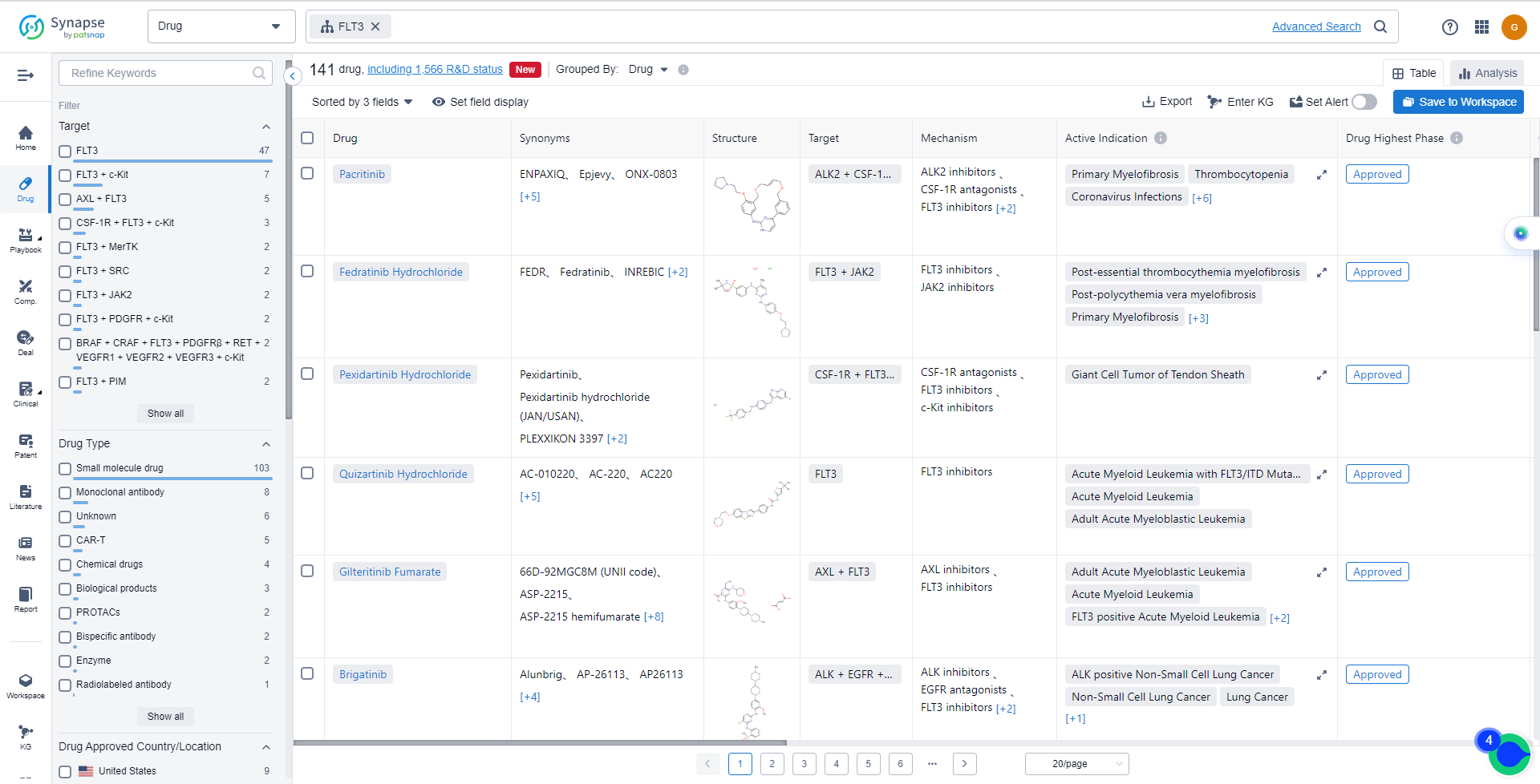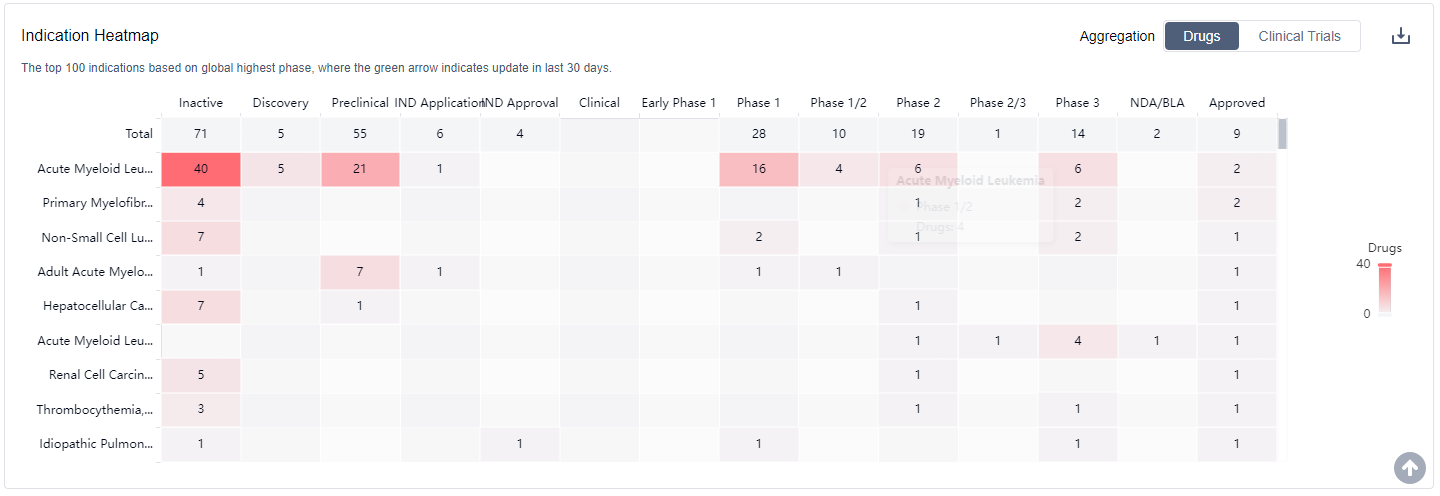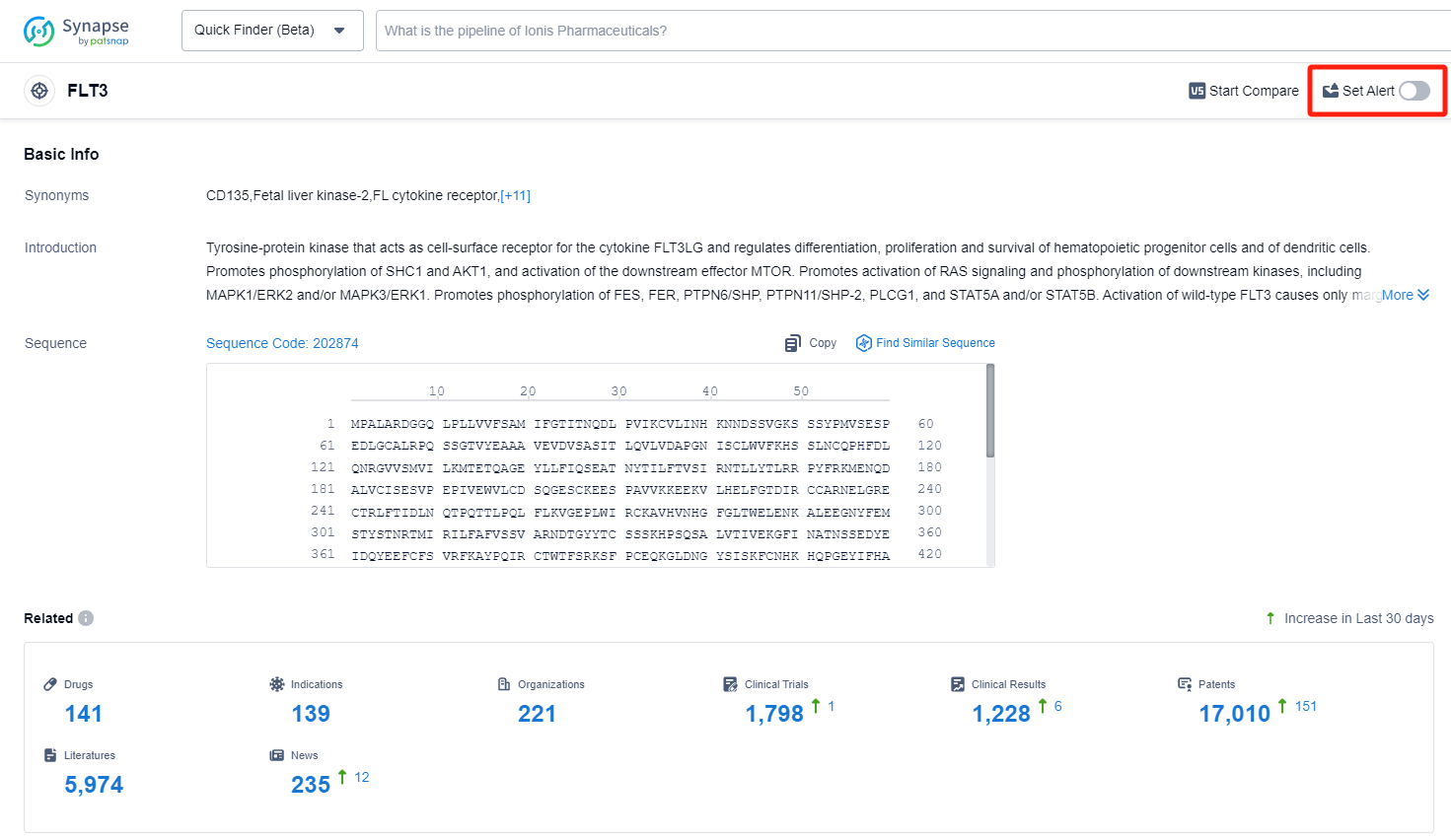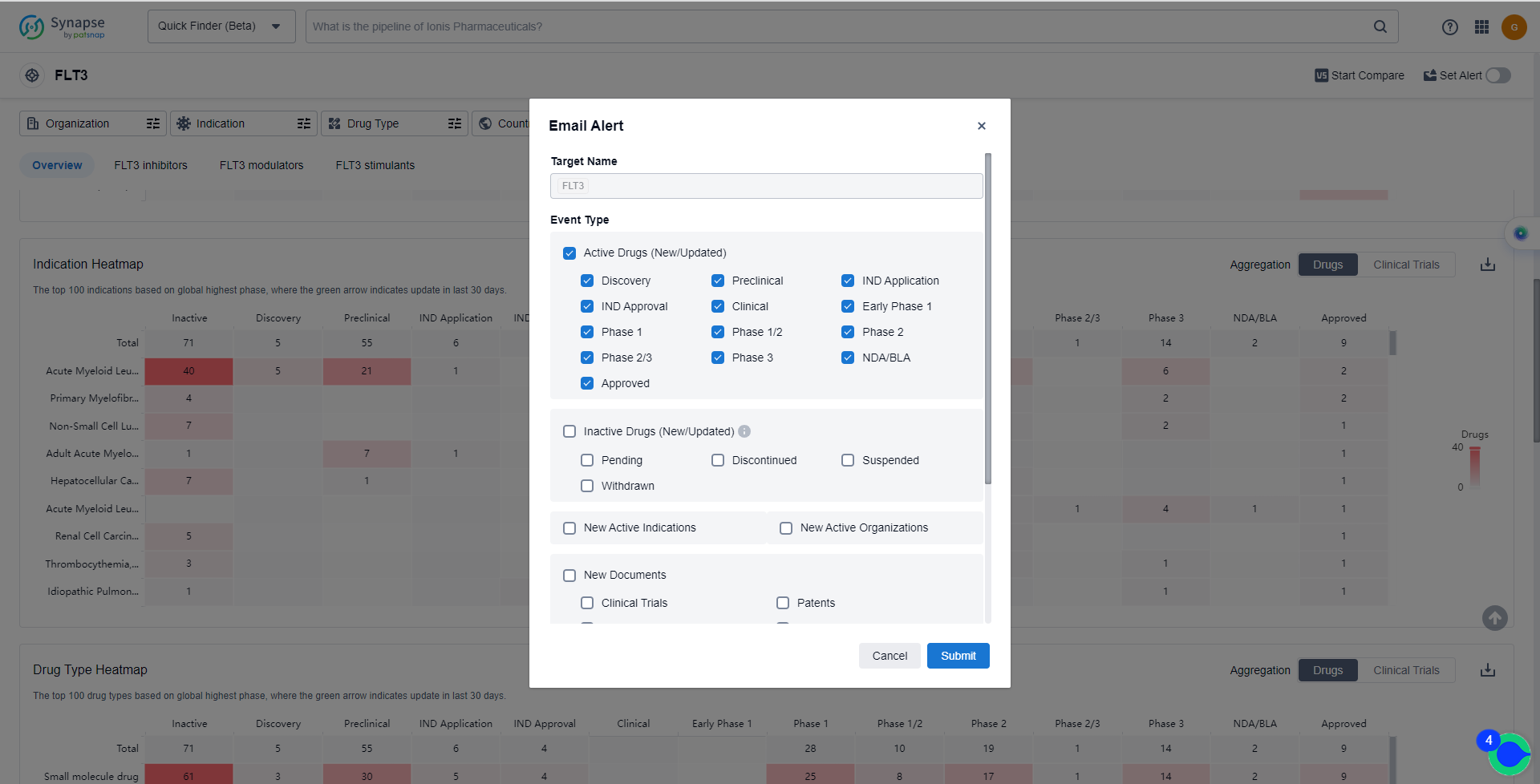What are FLT3 inhibitors and how do you quickly get the latest development progress?
FLT3, also known as FMS-like tyrosine kinase 3, is a receptor tyrosine kinase that plays a crucial role in the development and function of hematopoietic stem cells in the human body. It is primarily expressed on the surface of early progenitor cells in the bone marrow and is involved in regulating their proliferation, survival, and differentiation. Activation of FLT3 by its ligand leads to the activation of downstream signaling pathways, ultimately influencing the production of various blood cell types. Dysregulation or mutations in FLT3 have been associated with the development of certain hematological malignancies, making it an important target for therapeutic interventions in the pharmaceutical industry.
FLT3 inhibitors primarily work by competitively inhibiting the ATP binding site in the FLT3 receptor, leading to cell cycle arrest and differentiation. FLT3 inhibitors are divided into first-generation (such as sorafenib and midostaurin) and second-generation FLT3 inhibitors (such as quizartinib and gilteritinib). The first-generation FLT3 inhibitors have lower specificity for FLT3, have broader kinase group characteristics, and more off-target effects. In contrast, the second-generation FLT3 inhibitors are more specific and effective in inhibiting FLT3. Although researchers have made significant progress in the development of FLT3 inhibitors, the emergence of resistance poses a great challenge. Wild-type FLT3 (FLT3-WT) is sensitive to the FLT3 ligand and resistant to FLT3 inhibitors. Therefore, patients with FLT3 internal tandem duplication (ITD) mutations carrying FLT3-WT are prone to develop resistance to FLT3 inhibitors. In addition, microenvironmental factors may also affect the sensitivity of leukemia cells to inhibitors. The CYP3A4 enzyme expressed in bone marrow stromal cells accelerates the process of drug metabolism and the development of resistance to FLT3 inhibitors in the bone marrow microenvironment.
The analysis of the current competitive landscape of target FLT3 reveals that multiple companies are actively involved in the development of drugs targeting this specific target. Daiichi Sankyo Co., Ltd., Takeda Pharmaceutical Co., Ltd., Novartis AG, C.H. Boehringer Sohn AG & Co. KG, Astellas Pharma, Inc., and Swedish Orphan Biovitrum AB are some of the companies that are growing fastest under this target. These companies have drugs in various stages of development, including Approved, Phase 3, Phase 2, and Preclinical.
The drugs under the target FLT3 have been approved for indications such as Acute Myeloid Leukemia, Primary Myelofibrosis, Non-Small Cell Lung Cancer, and Hepatocellular Carcinoma. Small molecule drugs are progressing most rapidly under this target, indicating intense competition around the innovative drugs. Biosimilars, such as Monoclonal antibody and Antibody drug conjugate (ADC), also rank high, further intensifying the competition.
The United States, European Union, and China are among the countries/locations developing fastest under the target FLT3. China, in particular, has shown progress in the development of drugs targeting this specific target.
Overall, the target FLT3 presents a competitive landscape with multiple companies and drug types involved in its development. The future development of target FLT3 is expected to continue with advancements in R&D and increasing competition among pharmaceutical companies.
The mechanism of action of FLT3 inhibitors
FLT3 inhibitors are a type of medication that specifically target and inhibit the activity of the FLT3 protein. FLT3, or FMS-like tyrosine kinase 3, is a receptor tyrosine kinase that plays a crucial role in the development and functioning of certain blood cells, particularly hematopoietic stem cells and progenitor cells.
In the context of biomedicine, FLT3 inhibitors are primarily used in the treatment of acute myeloid leukemia (AML), a type of cancer that affects the blood and bone marrow. In some cases of AML, there is a mutation in the FLT3 gene, resulting in the overexpression and hyperactivity of the FLT3 protein. This abnormal activation of FLT3 promotes the growth and survival of leukemic cells, contributing to the progression of AML.
FLT3 inhibitors work by binding to the FLT3 protein and blocking its kinase activity. By inhibiting FLT3, these medications can help suppress the proliferation and survival of leukemic cells, thereby slowing down the progression of AML. Additionally, FLT3 inhibitors may also enhance the effectiveness of chemotherapy in treating AML.
It is important to note that FLT3 inhibitors are typically used in combination with other therapies, such as chemotherapy or stem cell transplantation, to achieve optimal outcomes in the treatment of AML. The specific FLT3 inhibitor used may vary depending on the individual patient's condition and the stage of the disease.
Overall, FLT3 inhibitors represent a targeted therapeutic approach in the management of AML, aiming to disrupt the aberrant signaling pathways associated with FLT3 mutations and improve patient outcomes.
Catalog of FLT3 Inhibitors
The currently marketed FLT3 inhibitors include:
- Pacritinib
- Fedratinib Hydrochloride
- Pexidartinib Hydrochloride
- Quizartinib Hydrochloride
- Gilteritinib Fumarate
- Brigatinib
- Midostaurin
- Nintedanib esylate
- Sorafenib Tosylate
- Clifutinib Besylate
For more information, please click on the image below.
What is the purpose of using FLT3 inhibitors?
FLT3 inhibitors have been approved for indications such as Acute Myeloid Leukemia, Primary Myelofibrosis, Non-Small Cell Lung Cancer, and Hepatocellular Carcinoma. For more information, please click on the image below to log in and search.
How can I get the most recent advancements in FLT3 inhibitors?
In the Synapse database, you can keep abreast of the latest research and development advances of FLT3 inhibitors anywhere and anytime, daily or weekly, through the "Set Alert" function. Click on the image below to embark on a brand new journey of drug discovery!








